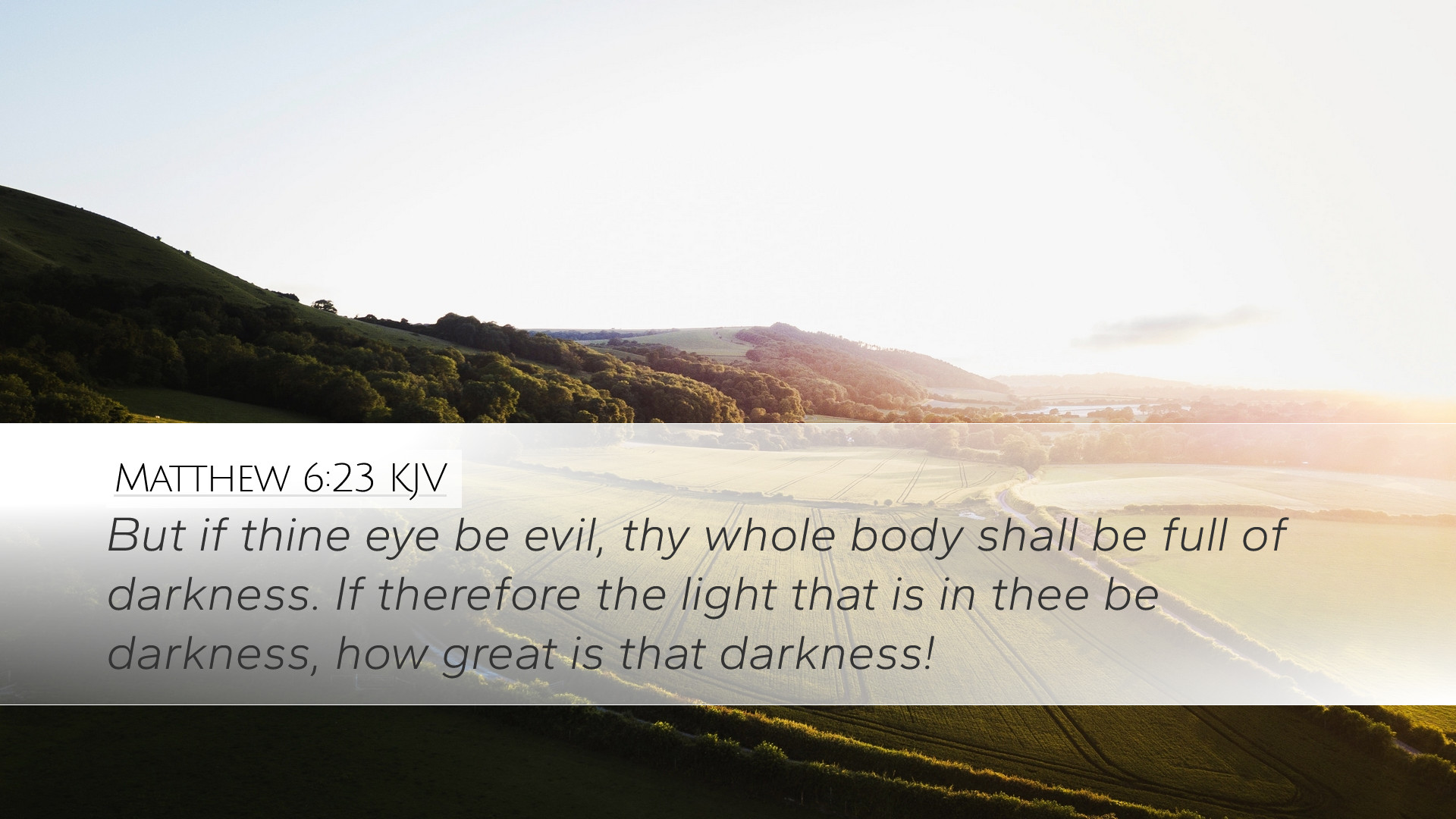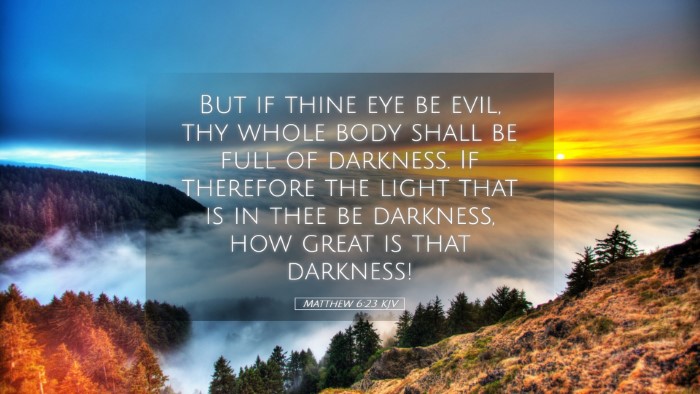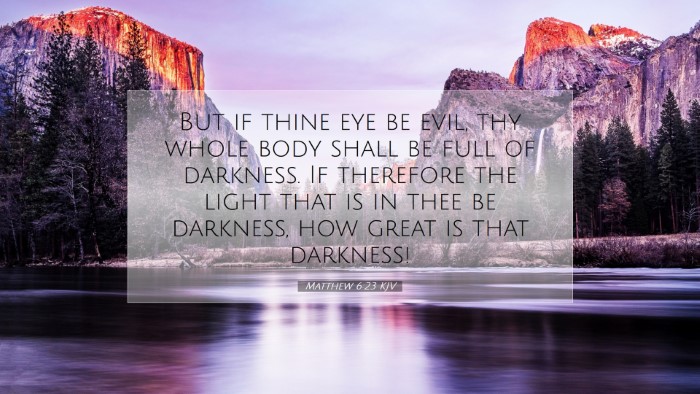Commentary on Matthew 6:23
Verse: "But if your eye is bad, your whole body will be full of darkness. If then the light in you is darkness, how great is the darkness!" (Matthew 6:23, ESV)
This verse is part of Jesus' Sermon on the Mount, where He contrasts the spiritual condition of the heart with the outward actions of life. The "eye" is a metaphor for perception and focus, suggesting that the way one sees the world affects their entire being.
Overview and Interpretation
Albert Barnes interprets this passage as emphasizing the importance of spiritual perception. He notes that the term "eye" symbolizes the understanding and perspective that a person has towards spiritual matters. A "bad eye" implies a poor or misguided perception, leading to spiritual darkness.
Adam Clarke emphasizes that this darkness is not merely an absence of light but a fullness of darkness, suggesting a profound corruption that leads to a life devoid of true spiritual insight. The implications of this darkness indicate that if one's inner perception is poor, all aspects of life will reflect this deficiency.
The Nature of the Eye
- Good Eye: Represents clarity and purity in one's perception of truth and righteousness.
- Bad Eye: Suggests a distorted view of reality, leading to moral and spiritual failure.
Matthew Henry adds that the eye is often referred to in Scripture as the lamp of the body (compare with Luke 11:34). Thus, the condition of the eye is critical as it enlightens the whole body. A good eye fills a person's life with light, reflecting a heart aligned with heavenly values.
Theological Implications
Theologically, this verse speaks to the essence of human perception and its consequences for spiritual health. It challenges believers to examine the “eye” of their heart (Ephesians 1:18) and to evaluate whether they see the world through a lens of faith or one of sin and skepticism.
Clarke points out that the extent of darkness that can infiltrate an individual is directly proportional to their perception of light. Thus, the believer's responsibility becomes one of guarding the heart and positioning their focus on the light of Christ.
Practical Application
Pastors and educators can draw upon this verse to teach congregants about discernment. Matthew Henry's commentary highlights that the pursuit of righteousness and understanding God's word should be the primary focus of the believer. When individuals cultivate a good eye through prayer, study, and service, they gather light, leading to a fruitful Christian life.
The call to keep one’s spiritual eye healthy can help prevent the encroachment of worldly values and distractions. This is vital in a culture where spiritual blindness can easily spread, causing individuals and communities to stray from the foundational truths of Scripture.
- Encouragement to Spiritual Vigilance: Believers should engage in self-reflection to ensure their focus remains on Christ.
- Teaching on Discernment: Educators can emphasize the importance of aligning one’s values with biblical teachings to maintain a "good eye."
- Community Accountability: Encouraging communal support among Christians to help maintain purity in vision and purpose.
Conclusion
The insight from Matthew 6:23 serves as a profound reminder for Christians regarding the significance of their focus and perceptions. As interpreters of Scripture and teachers of the faith, pastors and theologians must emphasize the grave consequences of a misguided perspective and the liberating joy of a life lived in the light of Christ.
In essence, maintaining a "good eye" is indispensable for experiencing the fullness of life that Jesus promises. Engaging with the text through communal study, personal reflection, and intentional prayer can foster a culture of light, rooted in the truth and love of the Gospel.


